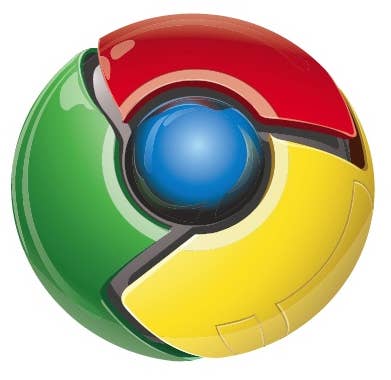GDC: "Traditional developers are scared," Google offers Native Client as solution
Google's Native Client easily brings PC games to the Chrome browser and Google+
Google is making it as easy as possible for publishers and developers to bring their existing PC games to both the Chrome browser and to Google+ through their Native Client initiative. Some 15 games have already made the transition and more are in the works, according to Colt McAnlis, Developer Advocate for Google.
McAnlis' mission is bringing games to the web for Google. "The thing that we're finding when talking to traditional developers is that they're scared, because they see all this energy and emotion going towards mobile and web and micro-transaction," says McAnlis. "The fact is they're just not geared to handle that. They don't have designers that know how to design for that space, they don't have programmers who can program for those technologies, they don't have producers and marketing people who understand the web and mobile to venture in there. What we're trying to do is bridge that gap."
McAnlis explains how Google's Native Client provides the answer. "Native Client is a technology that allows you to run C++ code in a web page with no plug-in, which is kind of amazing," McAnlis notes. "That means that these AAA developers who write code and shipped it on Xbox 360, like From Dust right here, can actually take this same code, compile it with Native Client, and put it right in a web page." Google feels that by removing the additional steps of downloading a plug-in, or installing a game, users will be much more likely to try a game. "The user isn't prompted for a plug-in, they aren't prompted for any security restrictions, anything," McAnlis said. "If you're running it at all, you get it immediately. We've seen numbers coming from vendors who provide the same sort of service with a plug-in, and in some cases they lose 95% of the users who wanted to play the game, when they get that plug-in screen."
McAnlis feels that with Native Client, developers can try new markets without a development cost. "They can take these existing technologies, like games, and use it to dip their foot into web and into this new model. For them to rewrite everything in Javascript or Flash is a massive undertaking; they're losing millions of dollars. But they can take the same code and go, 'Hey, we don't understand how the web works, let's put a product up there and figure it out.' They can do that with Native Client."
Another important factor in Google's view is the security issue. "We've removed all the malicious code. Anything that could be harmful, anything that could be a hack, we get rid of it," points out McAnlis. "So that code that's put up on the web, it's safe. We guarantee it's safe. That's why we don't have to ask you to install anything."
The Native Client solution doens't just work for the Chrome browser and Chromebooks. "We announced on Monday that Native Client games are now able to play on the Google+ canvas. This means that you can actually run C++ code on Google+. You get the full graph, you get full interaction with everything," noted McAnlis.
What's the price tag for Native Client? "The coolest part is that it's free," points out McAnlis. "You can start developing on Native Client right now. You can upload your game to the Chrome Web Store, which is our digital distribution service, for free, and ship it for free. We'll even host it for you for free. We don't charge a dime to the developer. You can monetize it any way you choose, we don't care, we don't box you in on that. If you do decide to use Google Wallet, which is our premier service, it will only take 5% per transaction. Which is amazing when you compare it to what these other silos are charging."
The obvious extension for Native Client would seem to be the mobile environment, but not according to McAnlis. Google is not planning to bring Native Client to the mobile platforms, believing that developers prefer to take full advantage of the capabilities and sensors available on tablets and smartphones. This seems like a rather facile explanation, and there may be other reasons why Google doesn't want to move in that direction at this time.
For the moment, the size of the current market seems more than ample to interest developers. "200 million users launch Chrome every 7 days, which is a considerable market," McAnlis pointed out. Already Square Enix has pledged to support Native Client long-term, Ubisoft has From Dust heading for an April ship date, and many other smaller studios have come on board.
McAnlis sums it all up when he says "We're exposing the power of the hardware in a safe and secure manner. We're giving you the speed, we're giving you the flexibility, and we're doing it in a way that the user does not have to worry about safety. We like to say that Chrome is the modern gaming browser."









